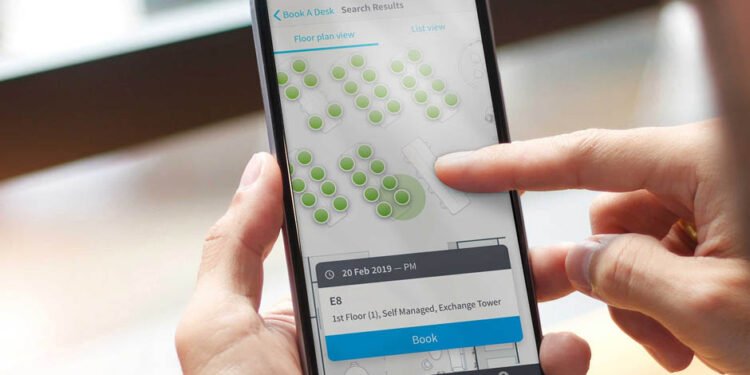Finding the right tool to manage your office seating arrangements can streamline operations and enhance productivity. Office seating has evolved with technology, allowing for more flexible and adaptable solutions. When it comes to choosing a system, it’s crucial to know the essential elements that make booking software efficient and user-friendly. Here, we break down the primary features that should be considered when selecting office seat management tools.
User-Friendly Interface and Accessibility
One of the first features to focus on when looking for seat reservation software is user accessibility. An easy-to-navigate interface is key for making the software accessible to all employees. When software is complex or unintuitive, employees may avoid using it, leading to confusion in office space management. Choosing a system with a simple design and clear navigation options encourages frequent use and reduces time spent on training. An accessible interface is also essential for employees who may work remotely or require quick updates on their seat assignments.
Real-Time Availability Tracking
A significant feature to consider is real-time tracking. This function allows employees to look up available office seats instantly, reducing scheduling conflicts. Real-time tracking not only improves workflow but also supports efficient use of office space by ensuring seats are never underutilized.
Real-time tracking is particularly valuable in dynamic work environments where employees frequently change seats. Choosing software that provides instant updates can significantly enhance how space is managed in an office setting.
Integration with Existing Office Tools
Office productivity thrives when software tools work seamlessly together. Integration capabilities are key for efficient operations. Choosing software that integrates with commonly used tools, such as calendars and communication platforms, reduces redundancies and simplifies scheduling. Employees can look at their daily tasks and book seats accordingly, maximizing efficiency. When software works harmoniously with existing tools, it reduces the need for multiple applications and creates a streamlined workflow.
Analytics and Reporting Features
Data-driven decision-making is increasingly important in modern offices. Choosing software with analytics and reporting options enables management to track seat utilization, identify patterns, and plan improvements. Features that offer insight into occupancy trends, peak times, and user preferences help optimize office resources.
Such reporting tools allow managers to make informed choices about space management, ensuring that the office layout aligns with employee needs. Analytics is key for continuous improvement in workspace efficiency.
Enhanced Security and Privacy Controls
Security is a top concern when dealing with any kind of employee data. Seat booking software often requires personal details, making strong privacy controls essential. Choosing software with advanced security features protects both the company and its employees.
Encryption, access restrictions, and secure data storage ensure that sensitive information remains confidential. Strong privacy measures provide employees with the confidence that their information is protected. Security features contribute to a safe office environment, making them a key consideration.
Boosting Workplace Flexibility and Efficiency
The benefits of implementing office booking software go beyond just seat management. One major advantage is the flexibility it brings to the workplace. Employees can look at available seats, allowing them to choose their preferred workspace for the day. This adaptability supports a hybrid work model, which is becoming more common.
Employees can easily book their seats in advance, ensuring that they have a designated place upon arrival. Office managers gain a clearer view of occupancy levels, helping them plan effectively.
The modern workplace demands adaptability, and seat booking software plays a pivotal role in enabling a hybrid work model, optimizing office space, and enhancing collaboration. Choosing the right seat reservation software can make a substantial difference in the way an office functions. By prioritizing key features like real-time tracking, integration with tools, and strong security, companies can build an efficient and flexible workspace.












